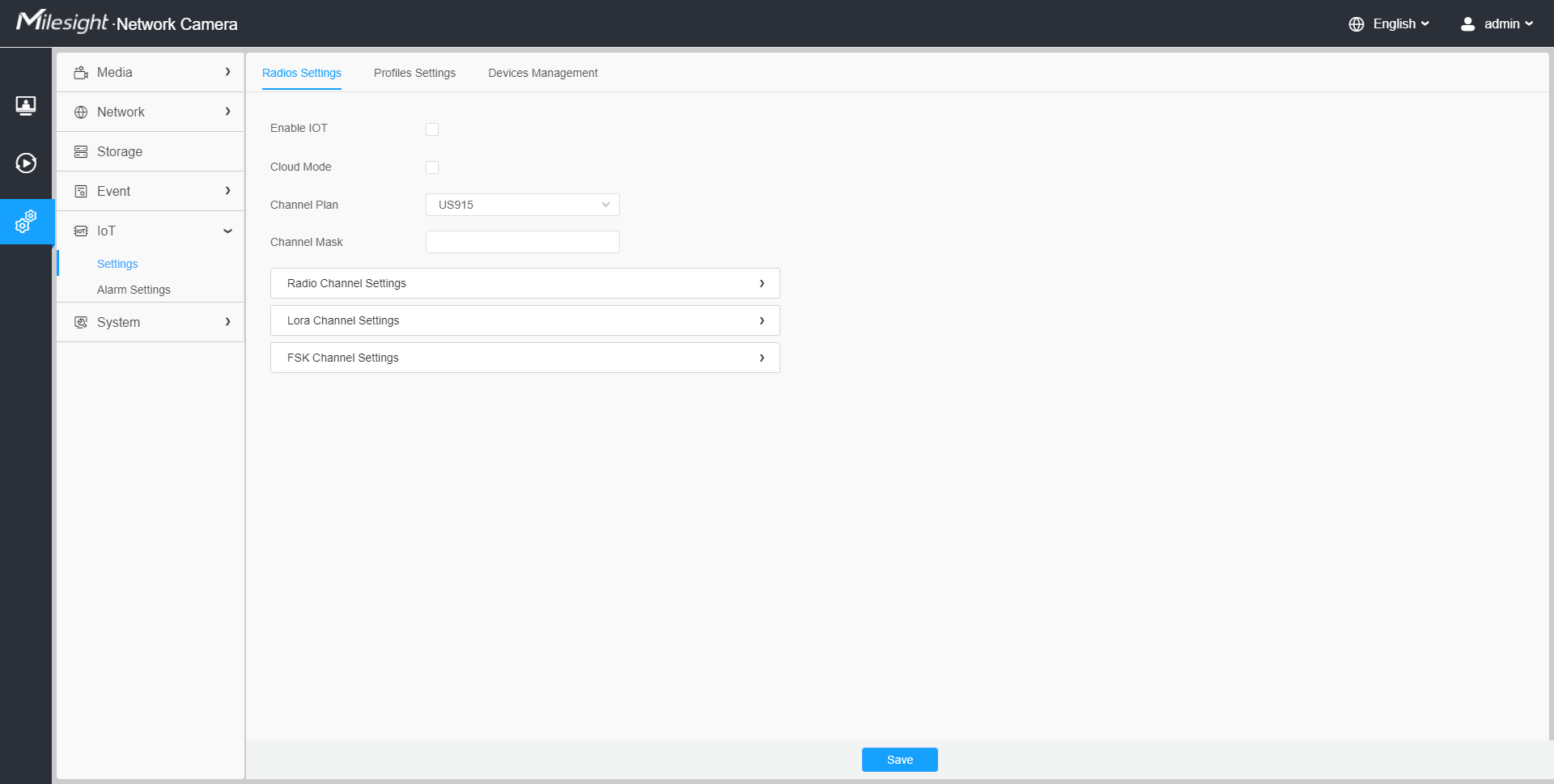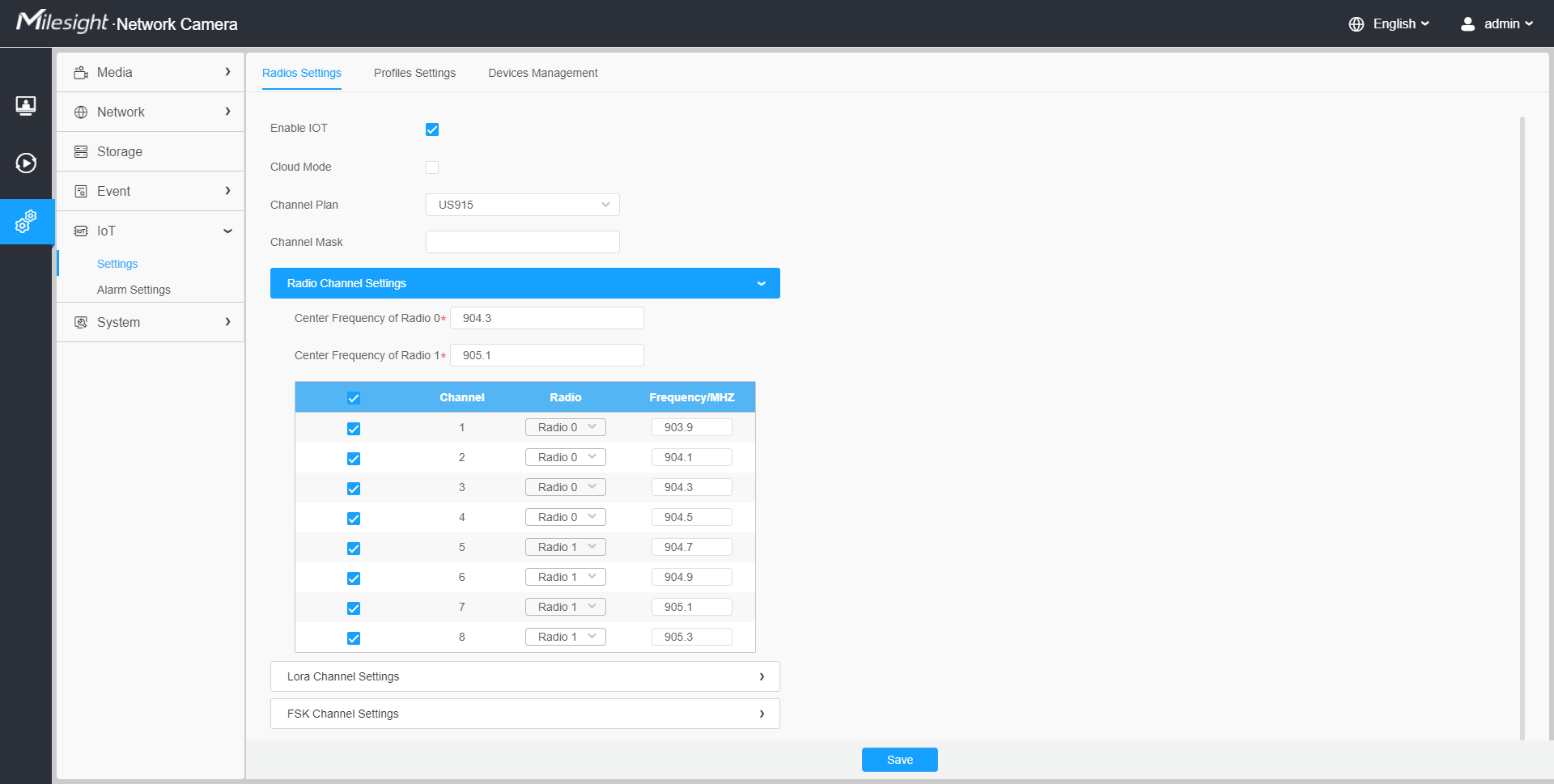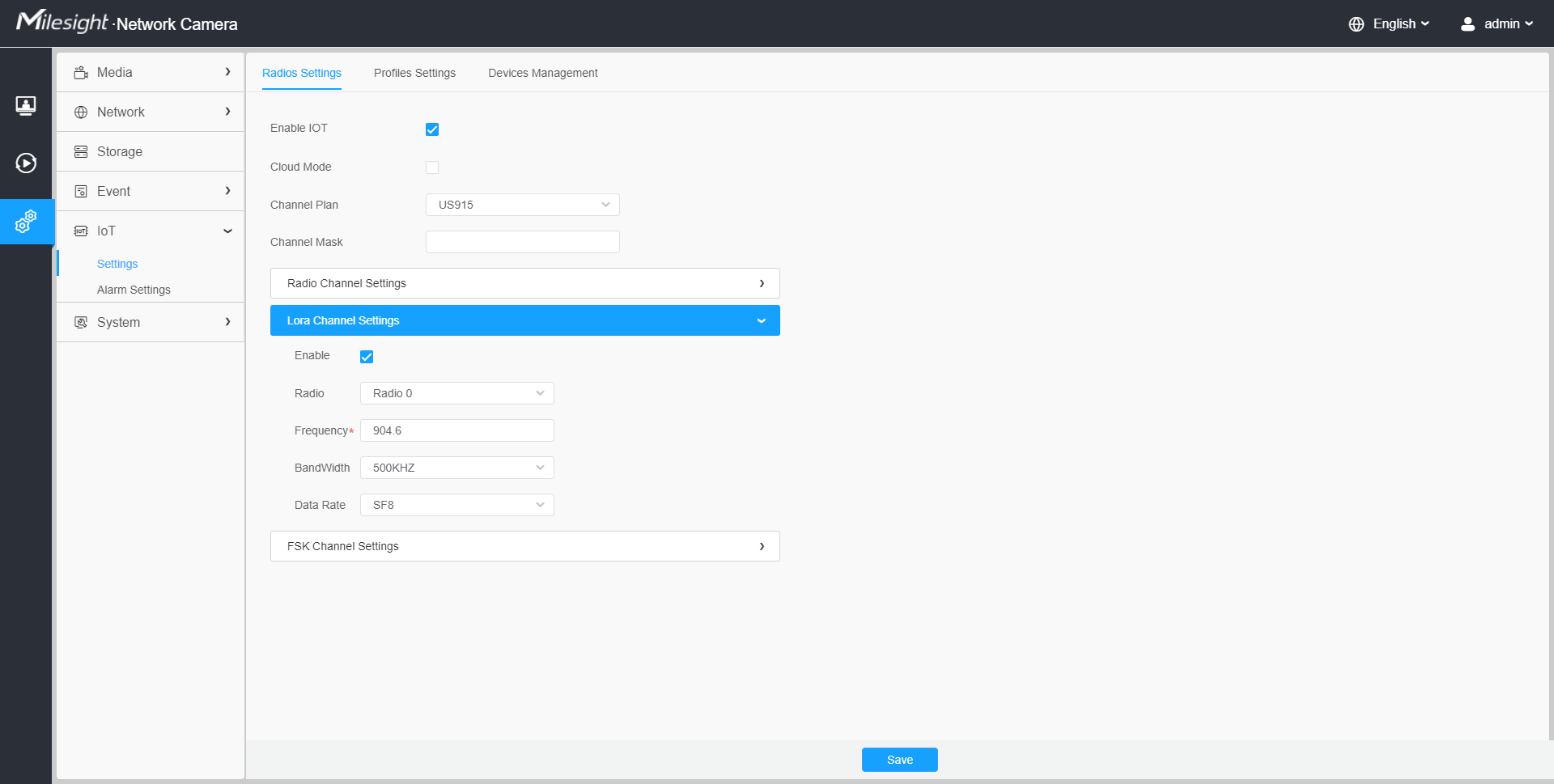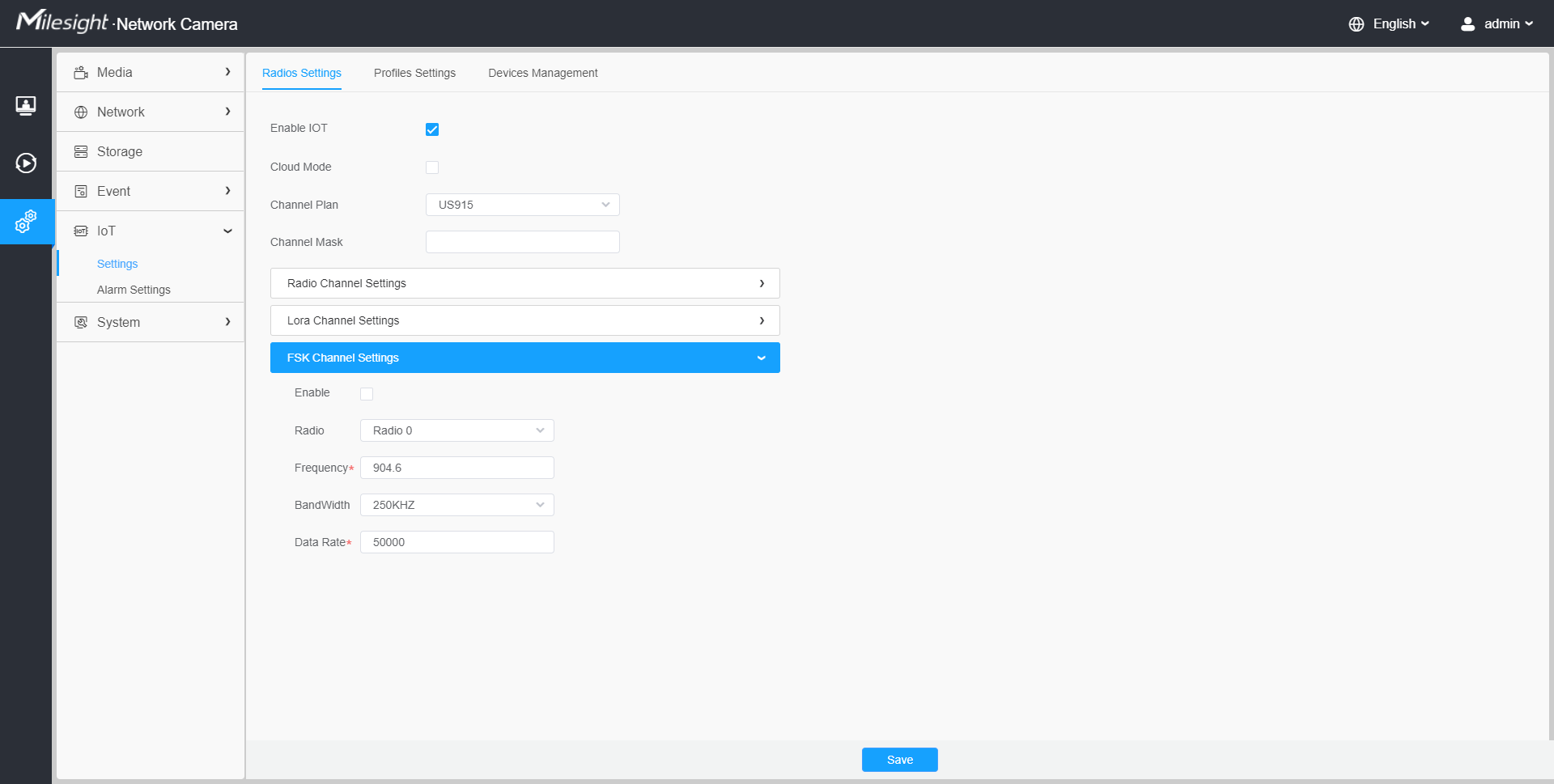8.7.1.1 Radios Settings
Currently our IoT camera supports three IoT frequency bands of 915M (The corresponding channel plan is US915/AU915/KR920/AS923/AS923-2), 868M (The corresponding channel plan is IN865/EU868/RU864) and 470M (The corresponding channel plan is CN470). Before buying the camera, you need to contact our sales to choose the frequency band that is supported in your country.
For example, here I choose the IoT camera with the frequency bands of 915M or reference document regional parameters for LoRaWAN, and it will show that the current channel plan is US915 on the page.

| Parameters | Function Introduction |
|---|---|
| Enable IoT |
Enable/Disable the IoT function. |
| Cloud Mode | Enable/disable Milesight IoT Cloud management. |
| Channel Plan | Show the corresponding channel plan of your IoT camera. |
| Channel Mask |
Enabled frequencies are controlled using channel mask. Leave it blank means using all the default standard usable channels specified in the LoRaWAN® regional parameters document. A bit in the Channel Mask field set to 1 means that the corresponding channel can be used for uplink transmissions if this channel allows the data rate currently used by the end-device. A bit set to 0 means the corresponding channels should be avoided.This option is optional for CN470, US915 and AU915. |
[Radio Channel Settings]

| Parameters | Function Introduction |
|---|---|
| Center Frequency of Radio 0 |
Supports transmitting and receiving packet; Note: For details of default value and configuration
ranges in different regions, please refer to Milesight
Troubleshooting-5G AIoT Camera.
|
| Center Frequency of Radio 1 |
Only supports receiving packet from nodes; Note: For details of default value and configuration
ranges in different regions, please refer to Milesight
Troubleshooting-5G AIoT Camera.
|
|
Multi-channel list |
The radio and frequency corresponding to all channels will be listed here. All channels are enabled by default. You can also check the box to enable the corresponding channel.
|
[Lora Channel Settings]

| Parameters | Function Introduction |
|---|---|
| Enable |
Enable/Disable the LoRa Channel. |
| Radio |
Choose Radio 0 or Radio 1 as center frequency. |
| Frequency |
Enter the frequency of this channel. For example:
For example, the center frequency is configured with 867.5, then the frequency range corresponding to each channel: 867.5-0.4625~867.5+0.4625. |
| Band Width |
Enter the bandwidth of this channel. 125KHz, 250KHz and 500KHz are available. The default option is 250KHz; Note: The default option is 500KHz for AU915 and US915.
|
| Data Rate |
From SF7 to SF12, the transmission rate decreases and the transmission distance increases. In general, the range of Data Rate is SF7 ~ SF12, the default value would be SF7. Only the default value of the Channel Plan AU915 and US915 is SF8. |
[FSK Channel Settings]

| Parameters | Function Introduction |
|---|---|
| Enable |
Enable/Disable the FSK Channel. |
| Radio |
Choose Radio 0 or Radio 1 as center frequency. |
| Frequency |
Enter the frequency of this channel. |
| BandWidth |
Enter the bandwidth of this channel. 125KHz, 250KHz and 500KHz are available. The default option is 125KHz. Note: The default option is 250KHz for AU915 and US915.
|
| Data Rate |
Enter the data rate. The Date Rate must be between 500~250000. |
